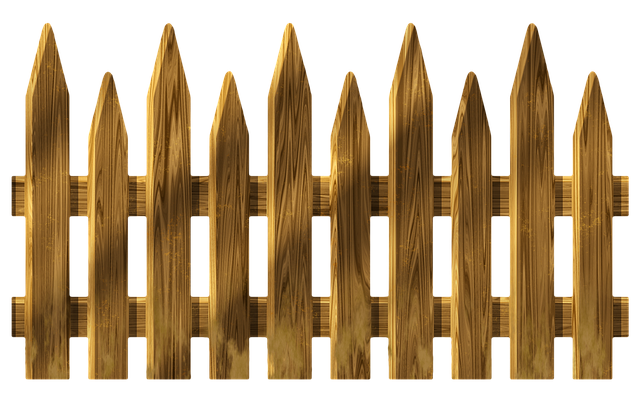In New Bedford, MA, the pursuit of sustainable living extends beyond urban centers, into backyard landscapes. Eco-friendly fencing materials offer an opportunity to blend functionality with environmental stewardship. This article explores the diverse eco-friendly fencing options available in New Bedford, highlighting their benefits for both homeowners and local ecosystems. From natural alternatives to traditional fences to considerations for installation, maintenance, and long-term cost savings, discover how sustainable fencing can enhance your space while contributing to a greener community.
- Eco-Friendly Fencing Options in New Bedford
- Benefits of Sustainable Fencing Materials
- Natural Alternatives to Traditional Fences
- Impact on Local Ecosystems and Wildlife
- Installation and Maintenance Considerations
- Long-Term Cost Savings and Return on Investment
Eco-Friendly Fencing Options in New Bedford
New Bedford, MA, residents now have a growing array of eco-friendly fencing options to choose from. These alternatives not only enhance outdoor spaces but also contribute to a greener environment. One popular choice is recycled plastic fencing, made from post-consumer materials like plastic bottles and containers. This durable option requires minimal maintenance and is resistant to rot, rust, and fading, making it a sustainable and cost-effective choice for many.
Another environmentally conscious option is natural, organic fencing materials such as bamboo, cedar, and treated wood. Bamboo fences offer both aesthetic appeal and fast growth rates, while cedar naturally resists decay and insects. These options not only reduce the carbon footprint associated with traditional fencing but also provide a unique visual appeal that can enhance the overall look of any property in New Bedford.
Benefits of Sustainable Fencing Materials
In New Bedford, MA, opting for eco-friendly fencing materials offers a multitude of benefits that extend beyond aesthetics. These sustainable options significantly contribute to environmental conservation by minimizing waste and reducing the carbon footprint associated with traditional fencing production methods. Materials like recycled plastic, wood from certified sustainable sources, and plant-based composites not only reduce pollution but also promote biodiversity by using renewable resources.
Moreover, sustainable fencing materials are durable and require less maintenance over time, saving homeowners and businesses money in the long run. They often have a longer lifespan compared to conventional fences, reducing the need for frequent replacements. Additionally, these eco-conscious choices can enhance property values, appealing to environmentally conscious buyers who prioritize sustainability.
Natural Alternatives to Traditional Fences
In New Bedford, MA, as awareness of environmental issues grows, so does the demand for eco-friendly fencing options. Traditional fences, often made from plastic or wood, can contribute to pollution and deforestation. Thankfully, there are natural alternatives that offer both beauty and sustainability. Materials like bamboo, recycled metal, and organic composite are emerging as popular choices.
Bamboo, known for its rapid growth and strength, creates a unique and visually appealing fence. Recycled metal, repurposed from industrial waste, adds a modern touch while reducing landfill waste. Organic composite, made from wood fibers and recycled plastics, offers the best of both worlds—the aesthetics of wood with the longevity of plastic. These natural alternatives not only contribute to a greener environment but also enhance the property’s aesthetic appeal, providing an eco-conscious solution for New Bedford residents.
Impact on Local Ecosystems and Wildlife
Eco-friendly fencing materials offer a sustainable alternative to traditional options, providing significant benefits for local ecosystems and wildlife in New Bedford, MA. Unlike conventional fences made from treated wood or metal, which can release harmful chemicals into the soil and water, these new materials are designed to minimize environmental impact. For instance, bamboo and recycled plastic fences are not only durable but also naturally resistant to rot and pests, reducing the need for toxic treatments.
The use of eco-friendly fencing supports biodiversity by creating habitats and passageways for local wildlife. Natural barriers allow animals to move freely, connect with one another, and access resources without being disrupted by artificial structures. This promotes a healthier balance within the ecosystem, fostering a thriving environment where plants and animals can flourish. By choosing these sustainable options, residents of New Bedford contribute to the preservation of their natural surroundings, ensuring a harmonious coexistence between human communities and local wildlife.
Installation and Maintenance Considerations
When considering eco-friendly fencing materials, Installation and Maintenance are key aspects to keep in mind. Natural barriers like bamboo or recycled plastic fences require specific care during installation to ensure they stand firm against elements and potential pests. Proper planning and execution are crucial for a durable, long-lasting fence that serves its purpose without causing environmental harm.
Maintenance involves regular cleaning, repair, and occasional replacement of sections. Eco-friendly materials often come with detailed guidelines for upkeep, focusing on minimal use of toxic chemicals and promoting natural regeneration where possible. With timely care, these fences can thrive for years, enhancing the landscape while contributing to a greener New Bedford community.
Long-Term Cost Savings and Return on Investment
When considering eco-friendly fencing materials, it’s crucial to look beyond initial costs. While traditional fencing might be cheaper upfront, sustainable options often offer long-term cost savings. These materials are designed for durability and longevity, reducing the need for frequent replacements or repairs. Over time, this translates into significant savings.
Additionally, many eco-friendly fencing materials provide a strong return on investment due to their ability to enhance property values. Unique and aesthetically pleasing designs, combined with the appeal of sustainability, can increase the curb appeal of homes in New Bedford, MA. This can lead to higher resale values and potential rental premiums, making these materials a smart financial decision for homeowners looking to both save money and contribute to a greener environment.
